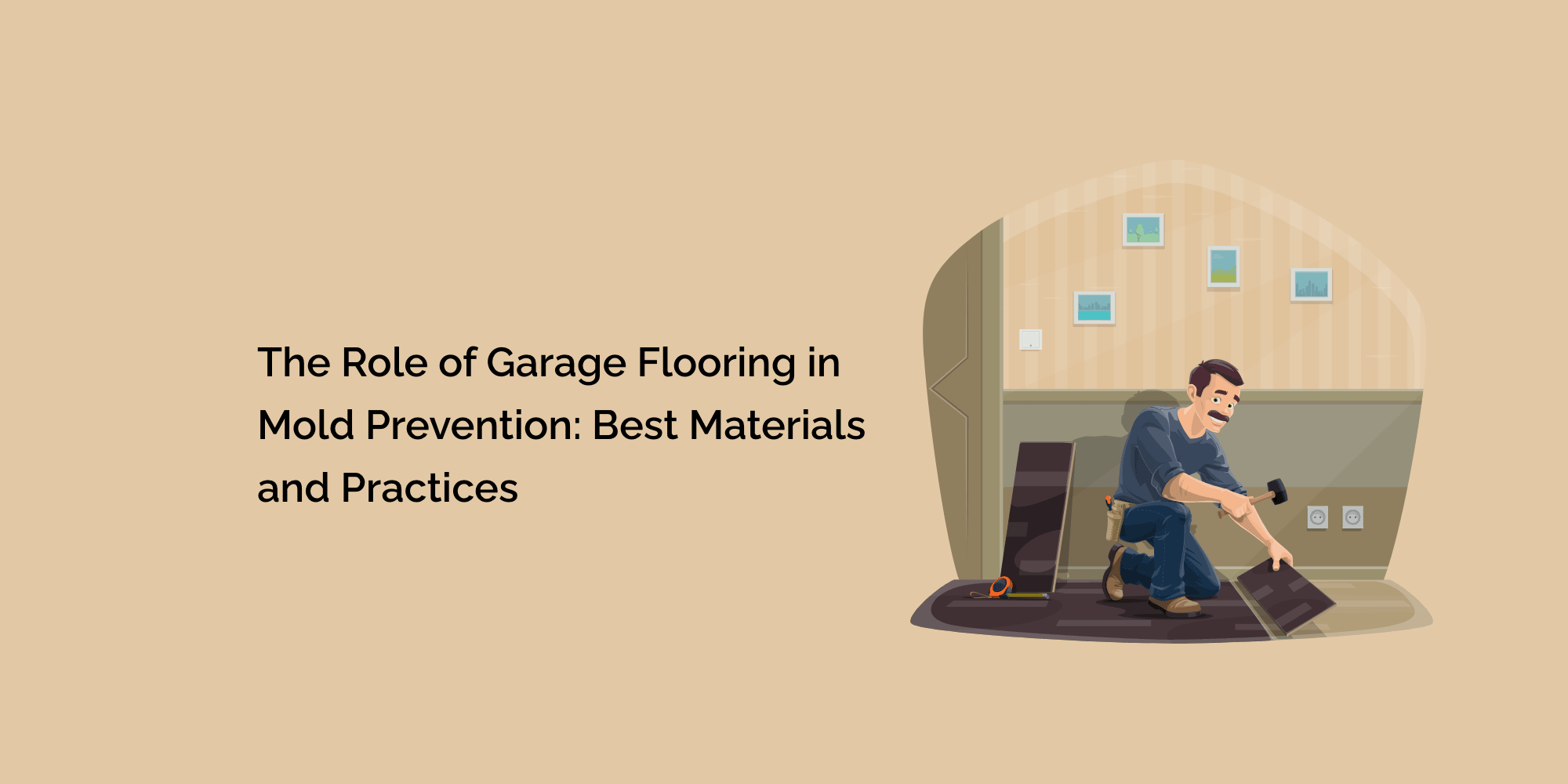Garage flooring plays a significant role in maintaining the overall cleanliness and functionality of your garage. Beyond aesthetics and durability, it can also contribute to mold prevention.
Mold thrives in damp and humid environments, making the choice of garage flooring materials and maintenance practices critical for keeping mold at bay.
In this comprehensive guide, we'll explore the role of garage flooring in mold prevention and provide insights into the best materials and practices to ensure a mold-free garage.
Why Garage Flooring Matters for Mold Prevention
Mold growth often starts at the ground level, where moisture can accumulate. Garage flooring can impact mold prevention in several ways:
-
Moisture Barrier: The right flooring material can act as a moisture barrier, preventing ground moisture from seeping through and accumulating in the garage.
-
Easy Maintenance: Some flooring materials are easier to clean and maintain, reducing the risk of mold-friendly conditions.
-
Ventilation: Garage flooring can also affect the efficiency of ventilation systems, which are crucial for managing humidity and preventing mold growth.
Now, let's delve into the best garage flooring materials and practices for effective mold prevention.
Best Garage Flooring Materials for Mold Prevention
-
Concrete:
- Advantages: Concrete is a popular and cost-effective choice. It's naturally moisture-resistant and can withstand heavy use.
- Sealing:* Applying a concrete sealer can further enhance its resistance to moisture. Sealers create a protective barrier that prevents water absorption and mold growth.
- Maintenance:* Regularly clean and inspect concrete floors for cracks or damage. Promptly repair any issues to maintain the moisture barrier.
-
Porcelain or Ceramic Tile:
- Advantages: These tiles are resistant to moisture, durable, and easy to clean.
- Grout Sealing:* Properly seal the grout between tiles to prevent moisture infiltration and mold growth in the crevices.
- Maintenance:* Regularly clean the tiles and reseal grout as needed to maintain the moisture barrier.
-
Vinyl Flooring:
- Advantages: Vinyl is water-resistant, easy to install, and comes in various styles.
- Sealing Edges:* Ensure the edges of vinyl flooring are properly sealed to prevent moisture from seeping beneath.
- Maintenance:* Keep vinyl flooring clean and promptly address any damaged areas to prevent moisture penetration.
Garage Flooring Practices for Mold Prevention
-
Proper Installation: Ensure that your chosen garage flooring material is installed correctly, with no gaps or uneven surfaces that can trap moisture.
-
Regular Cleaning: Clean your garage flooring regularly to remove dust, debris, and moisture that can contribute to mold growth. Use a wet-dry vacuum or a mop designed for your flooring material.
-
Ventilation: Properly ventilate your garage to reduce humidity levels. Use exhaust fans or open windows when possible to promote air circulation and moisture removal.
-
Use Dehumidifiers: If your garage experiences high humidity levels, consider using a dehumidifier to maintain optimal moisture levels.
-
Inspect for Cracks: Regularly inspect your garage flooring for cracks or damage. Repair any issues promptly to prevent moisture infiltration.
-
Storage Practices: Elevate items off the garage floor and use shelves or storage racks to allow air circulation, preventing moisture buildup.
Conclusion
Garage flooring plays a crucial role in mold prevention, serving as a barrier against ground moisture and contributing to overall humidity management.
By choosing the right materials, maintaining your flooring, and implementing proper ventilation and storage practices, you can create a mold-resistant environment in your garage.
A mold-free garage not only protects your belongings but also ensures a clean and healthy space for your various needs.








